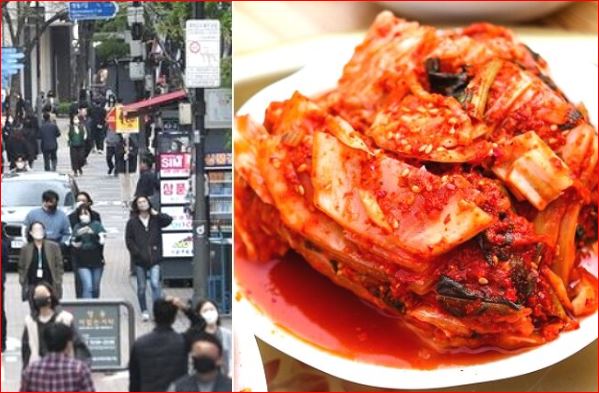Reporter : Seunghwa Yoon
Publisher ; NTDTV Korea
Translation, editing : Gan Yung Chyan
/ KUCINTA SETIA
Image : Kimchi, the national dish of South Korea and North Korea, is primarily cabbage. Web Screenshot
A study by European researchers on kimchi is the reason why there were relatively few deaths in South Korea.
On 13 July 2020, the British media, The Sun, reported according to a scholar in the field of respiratory and allergies. Jean Busque, honorary professor of pulmonology at Montpellier University, France the results of Jean's research team analysis.
According to the report, Jean's team studied the correlation between the number of deaths in covid and the difference in eating habits by country.
What the researchers noted in this study was the relatively small number of deaths in South Korea and Germany.
South Korea and Germany had one thing in common with their eating habits: they eat fermented cabbage or cabbage as a staple food.
Koreans eat kimchi while Germans eat sauerkraut (German kimchi fermented by pickling cabbage).
The researchers analyzed that their diet led to fewer covid deaths.
According to the researchers, fermented Chinese cabbage has the effect of inhibiting an enzyme called ACE2. SARS-CoV-2 binds to ACE2 and penetrates into cells.
In other words, kimchi made from fermented cabbage can act as a natural inhibitor of ACE2.
As a result, according to Yonhap News Agency, the researchers made a claim that "cabbage helps prevent covid."
In fact, the researchers cited Switzerland as an example, giving evidence that there were far more deaths from covid in French- and Italian- than in German-speaking areas.
In the German-speaking areasof Switzerland, eating sauerkraut is relatively frequent, according to the comment.
“We have rarely noticed the correlation between SARS-CoV-2 proliferation and country-specific dietary differences,” said Professor Jean Busque.
He also revealed that he had changed his diet mainly from cabbage based on this research.
The research paper was published in the international journal 'Clinical and Translational Allergy'.
"The results are very interesting," said Professor Jay Deep Ray of Sheffield University, UK. "We are still learning about a new virus called corona." "The correlation observed from the large population data is worth exploring."
When the severe acute respiratory syndrome (SARS) became prevalent in 2002, it was speculated that kimchi was the reason why South Korea suffered less damage, so kimchi exports increased significantly.
Korean researchers have also demonstrated kimchi's inhibitory effect on influenza viruses.
As a result of the administration of the Kimchi extract to the influenza virus by the team of Dr. Inho Kim of the Korea Food Research Institute, it was found that kimchi has the effect of repressing the formation of the virus.




No comments:
Post a Comment